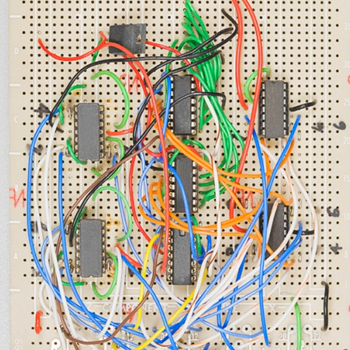A lottery claims that 10% of tickets win a prize. How many tickets should you purchase to be more than 50% sure of winning a prize?
1 Answer
You have to buy at least
Explanation:
Let
In this lottery tickets, the probability for NOT winning a prize is
If you want more than
the number of tickets you have to buy
Put
Thus, the minimum integer that meets
[What is the point?]
The concept I applied to this question is called complementary event.
https://en.wikipedia.org/wiki/Complementary_event
This idea is useful to evaluate the probability for having at least one event.
Consider a simpler case and you will notice the convenience.
[Example]
If you solve this from the front, you need to consider three cases.
(a) three
(b) two
(c) a
It will be complicated. Insted, you can solve it from the back door.
(1) If a dice is rolled, the probability of not having a
(2) When three dices are rolled, they are independent. So the probability of having no
(3) Having at least one 6 is

